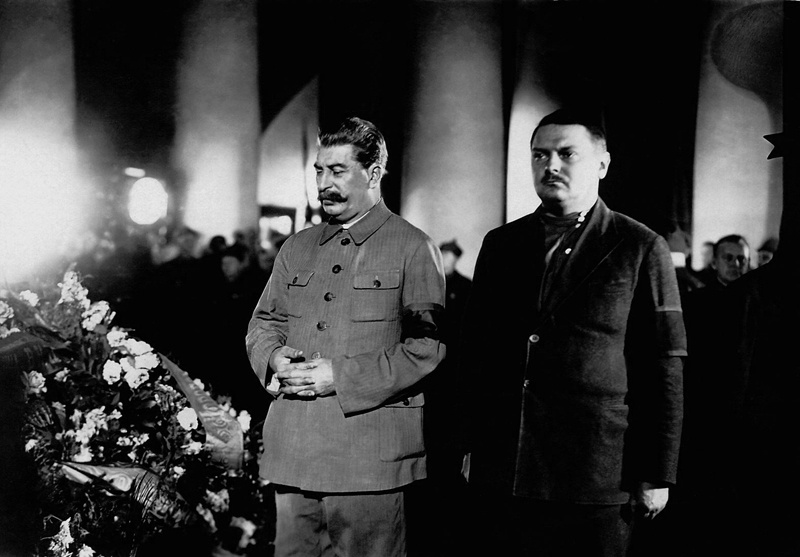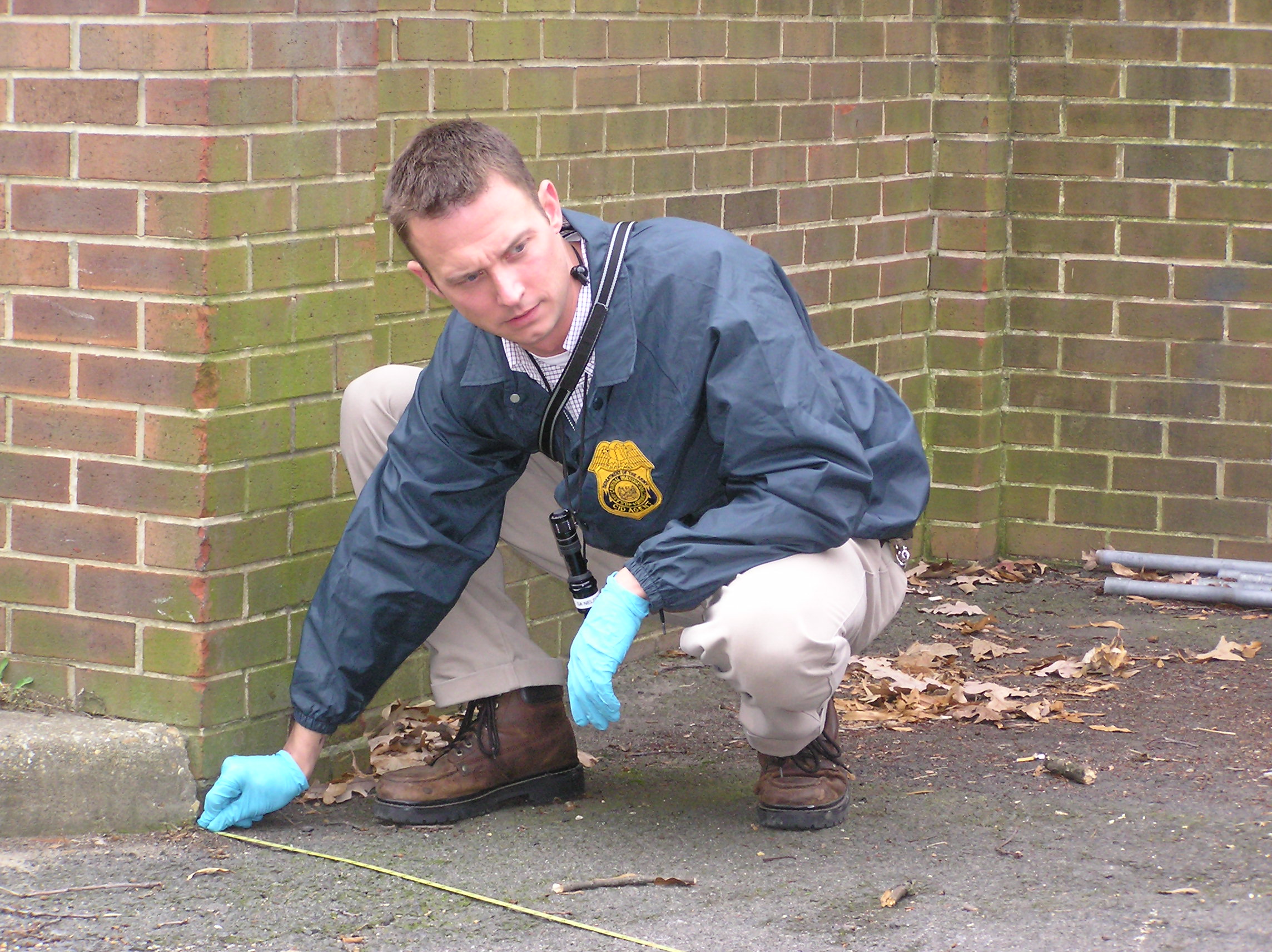|
Extraordinary State Commission
The Extraordinary State Commission for the Establishment and Investigation of the Atrocities of the German Fascist Invaders and Their Accomplices and the Damage They Caused to Citizens, Collective Farms, Public Organizations, State Enterprises and Institutions of the USSR (ChGK) was the state commission of the USSR during the Great Patriotic War (also known as the Eastern Front of World War II). The commission was formed by the decree of the Presidium of the Supreme Soviet of the USSR on November 2, 1942. The decree stipulated that the task of the ChGK was to "take full account of the villainous crimes of the Nazis and the damage they caused to Soviet citizens and the socialist state, to establish the identity of the German fascist criminals with the aim of bringing them to trial and severe punishment; unification and coordination of the work already carried out by the Soviet state bodies in this area." History The Commission's full ceremonial name was Extraordinary State Comm ... [...More Info...] [...Related Items...] OR: [Wikipedia] [Google] [Baidu] |
Janowska Concentration Camp
Janowska concentration camp (, , ) was a German Nazi concentration camp combining elements of labor, transit, and extermination camps. It was established in September 1941 on the outskirts of Lwów in what had become, after the German invasion, the General Government (today: Lviv, Ukraine). The camp was named after the nearby street ''Janowska'' in Lwów of the interwar Second Polish Republic. The Germans liquidated the camp in November 1943, with the evidence of mass murder being largely destroyed in the Nazi program of '' Sonderaktion 1005''. Estimates put the total number of prisoners who passed through the Janowska camp at between 100,000 and 120,000, mostly Polish and Soviet Jews. The number of victims murdered at the camp is estimated at 35,000–40,000. Background Lwów (now Lviv) was a multicultural city just before World War II, with a population of 312,231. The city's 157,490 ethnic Poles constituted over 50 per cent, with Jews at 32 per cent (99,595) and Ukrainians ... [...More Info...] [...Related Items...] OR: [Wikipedia] [Google] [Baidu] |
Andrei Zhdanov
Andrei Aleksandrovich Zhdanov ( rus, Андрей Александрович Жданов, p=ɐnˈdrʲej ɐlʲɪkˈsandrəvʲɪdʑ ˈʐdanəf, a=Ru-Андрей Жданов.ogg, links=yes; – 31 August 1948) was a Soviet politician. He was the Soviet Union's "propagandist-in-chief" after the Second World War,V. M. Zubok and Konstantin Pleshakov. Inside the Kremlin's Cold War: from Stalin to Khrushchev. Harvard: Harvard UP, 1996, p.119 and was responsible for developing the Soviet cultural policy, the Zhdanov Doctrine, which remained in effect until the death of Joseph Stalin. Zhdanov was considered Stalin's most likely successor but died before him. Zhdanov joined the Bolsheviks in 1915 and quickly rose through the party ranks. A close associate of Stalin, he became a secretary of the Central Committee of the Communist Party of the Soviet Union, Central Committee in 1934, and later that year he was promoted to Saint Petersburg, Leningrad party chief following the assassinati ... [...More Info...] [...Related Items...] OR: [Wikipedia] [Google] [Baidu] |
The Holocaust In Ukraine
The Holocaust saw the systematic mass murder of Jews in the '' Reichskommissariat Ukraine'', the General Government, the Crimean General Government and some areas which were located to the east of ''Reichskommissariat Ukraine'' (all of those areas were under the military control of Nazi Germany), in the Transnistria Governorate and Bessarabia, Northern Bukovina and the Hertsa region (all of those areas were then part of Romania, with the latter three areas being re-annexed) and Carpathian Ruthenia (then part of Hungary) during World War II. The listed areas are currently parts of Ukraine (except modern-day Transnistria). Between 1941 and 1945, between 850,000 Slavica Publishers. and 1,600,000 Jews were killed in Ukraine, which included assistance of local collaborators. According to Yale historian Timothy D. Snyder, "the Holocaust is integrally and organically connected to the '' Vernichtungskrieg'', the war in 1941, and it is organically and integrally connected to the atte ... [...More Info...] [...Related Items...] OR: [Wikipedia] [Google] [Baidu] |
The Holocaust In Latvia
The Holocaust in Latvia refers to the crimes against humanity committed by Nazi Germany and collaborators victimizing Jews during the occupation of Latvia. From 1941 to 1944, around 70,000 Jews were murdered, approximately three-quarters of the pre-war total of 93,000. In addition, thousands of German and Austrian Jews were deported to the Riga Ghetto. German occupation The German army crossed the Soviet frontier in the early morning of Sunday 22 June 1941, on a broad front from the Baltic Sea to Hungary. The Germans advanced through Lithuania towards Daugavpils and other strategic points in Latvia. The Nazi police state included an organisation called the Security Service (German: ''Sicherheitsdienst''), generally referred to as the SD, and its headquarters in Berlin was known as the Reich Security Main Office (RSHA).Ezergailis, ''The Holocaust in Latvia'', p245. The SD in Latvia Ahead of the invasion, the SD had organised four ''Einsatzgruppen'', mobile killing squads. ... [...More Info...] [...Related Items...] OR: [Wikipedia] [Google] [Baidu] |
Criminal Investigation
Criminal investigation is an applied science that involves the study of facts that are then used to inform criminal trials. A complete criminal investigation can include Search and seizure, searching, interviews, interrogations, Evidence (law), evidence collection and preservation, and various methods of investigation. Modern-day criminal investigations commonly employ many modern scientific techniques known collectively as forensic science. Criminal investigation is an ancient science that may have roots as far back as in the writings of the Code of Hammurabi. In the code, it is suggested that both the accuser and the accused had the right to present evidence they collected. In the modern era, criminals investigations are most often done by government Police, police forces. Private investigators are also commonly hired to complete or assist in criminal investigations. An early recorded professional criminal investigator was the English constable. Around 1250 CE, it was recorde ... [...More Info...] [...Related Items...] OR: [Wikipedia] [Google] [Baidu] |
1942 Establishments In The Soviet Union
Year 194 ( CXCIV) was a common year starting on Tuesday of the Julian calendar. At the time, it was known as the Year of the Consulship of Septimius and Septimius (or, less frequently, year 947 ''Ab urbe condita''). The denomination 194 for this year has been used since the early medieval period, when the Anno Domini calendar era became the prevalent method in Europe for naming years. Events By place Roman Empire * Decimus Clodius Septimius Albinus Caesar became a Roman Consul. * Battle of Issus: Septimius Severus marches with his army (12 legions) to Cilicia, and defeats Pescennius Niger, Roman governor of Syria. Pescennius retreats to Antioch, and is executed by Severus' troops. * Septimius Severus besieges Byzantium (194–196); the city walls suffer extensive damage. Asia * Battle of Yan Province: Warlords Cao Cao and Lü Bu fight for control over Yan Province; the battle lasts for over 100 days. * First year of the ''Xingping'' era during the Han Dynasty in Ch ... [...More Info...] [...Related Items...] OR: [Wikipedia] [Google] [Baidu] |
Ilya Trainin
Ilya Pavlovich Trainin (26 December 1886, Riga – 27 June 1949, Moscow) was a Soviet lawyer and prominent jurist. He began to attend a Marxist circle in Tiiga and joined the Bolsheviks, Bolshevik faction of the RSDLP in 1904. He participated in the armed uprising in Riga during the 1905 Revolution. He was subsequently arrested and though he escaped once he was recaptured and imprisoned for seven months in Riga. Officially exiled to Siberia, he illegally made his way to Poland and then on to Geneva, Switzerland. Here he remained, studying social sciences and participating in the revolutionary movement. He was secretary of the Vpered group. He went to Samara in May 1917 and joined the Samara Revolutionary Committee at the time of the October Revolution, Bolshevik seizure of power in October that year. He was active in the Food Commissariat of the Samara Governorate and was elected to the Samara city and provincial executive committee of the Soviets, for whom he edited various mag ... [...More Info...] [...Related Items...] OR: [Wikipedia] [Google] [Baidu] |
Aleksey Nikolayevich Tolstoy
Aleksey Nikolayevich Tolstoy (; – 23 February 1945) was a Russian writer whose works span across many genres, but mainly belonged to science fiction and historical fiction. Despite having opposed the Bolshevik Revolution in 1917, he was able to return to Russia six years later and live a privileged life as a highly paid author, reputedly a millionaire, who adapted his writings to conform to the line laid down by the All-Union Communist Party (Bolsheviks). Life and career Parentage Tolstoy's mother Alexandra Leontievna Turgeneva (1854–1906) was a grand-niece of Nikolay Turgenev, who had been a Decembrist, and a relative of the Russian writer Ivan Turgenev. She married Count Nikolay Alexandrovich Tolstoy (1849–1900), a member of the aristocratic Tolstoy family and a distant relative of Leo Tolstoy. Aleksey claimed that Count Tolstoy was his biological father, which allowed him to style himself as a Count; since his mother had taken a lover and left her husband before ... [...More Info...] [...Related Items...] OR: [Wikipedia] [Google] [Baidu] |
Yevgeny Tarle
Yevgeny Viktorovich Tarle (; – 6 January 1955) was a Soviet historian, Marxist scholar, and academician of the Russian Academy of Sciences, who studied and published on topics such as the Napoleonic invasion of Russia and the Crimean War. Much of his work dealt with themes of Marxist historiography, imperialism, and Russian nationalism. Tarle spent much of his professional life disagreeing with state authorities over his scholarship and was also a founder of the Moscow State Institute of International Relations (Russia's diplomatic university). Life Early life and education Yevgeny Tarle born Grigory Tarle in 1874 in Kyiv, Russia (modern-day Ukraine) into a Jewish family. He changed his name as a young man, before converting to the Orthodox Church. His father, Viktor Grigorievich Tarle, belonged to the Merchantry Social Estate and ran a shop in Kyiv. Viktor also translated books from Russian to German, including the works of Fyodor Dostoyevsky. Viktor and his wife Ro ... [...More Info...] [...Related Items...] OR: [Wikipedia] [Google] [Baidu] |
Trofim Lysenko
Trofim Denisovich Lysenko (; , ; 20 November 1976) was a Soviet agronomist and scientist.''An ill-educated agronomist with huge ambitions, Lysenko failed to become a real scientist, but greatly succeeded in exposing of the “bourgeois enemies of the people.” From such a “scion” who was “grafted” to the Stalinist totalitarian regime “stock”, impressive results could have been expected—and were indeed achieved.'' He was a proponent of Lamarckism, and rejected Mendelian inheritance, Mendelian genetics in favour of his own idiosyncratic, Pseudoscience, pseudoscientific ideas later termed Lysenkoism. In 1940, Lysenko became director of the Institute of Genetics of the Russian Academy of Sciences, Soviet Academy of Sciences, and he used his political influence and power to suppress dissenting opinions and discredit, marginalize, and imprison his critics, elevating his anti-Mendelian theories to state-sanctioned doctrine. Soviet scientists who refused to renounce gene ... [...More Info...] [...Related Items...] OR: [Wikipedia] [Google] [Baidu] |
Nicholas (Yarushevich)
Metropolitan Nicholas (, born as Boris Dorofeyevich Yarushevich, ; 12 January 1892 – 13 December 1961), was the Metropolitan of Kiev in the Patriarchate of Moscow. Biography Metropolitan Nicholas was born in Kovno (now Kaunas, Lithuania), where his father, Archpriest Dorofey Filofeyevich Yarushevich, was rector of Alexander Nevsky Cathedral. He was educated at St Petersburg University, and graduated in 1914 from the Saint Petersburg Theological Academy. Soon after he was ordained, he was sent to the front during the war with Germany, but was recalled in 1915 after falling seriously ill. In 1918, he was appointed rector of the Saints Peter and Paul Cathedral in Petrograd (St Petersburg). On March 25, 1922 he was consecrated Bishop of Peterhof, vicar of the Petrograd dioscese, but he was almost immediately arrested for refusing to recognise the so-called Renovationism. He was released in 1927, when he supported the declaration of Metropolitan Sergius, who controversially ple ... [...More Info...] [...Related Items...] OR: [Wikipedia] [Google] [Baidu] |



